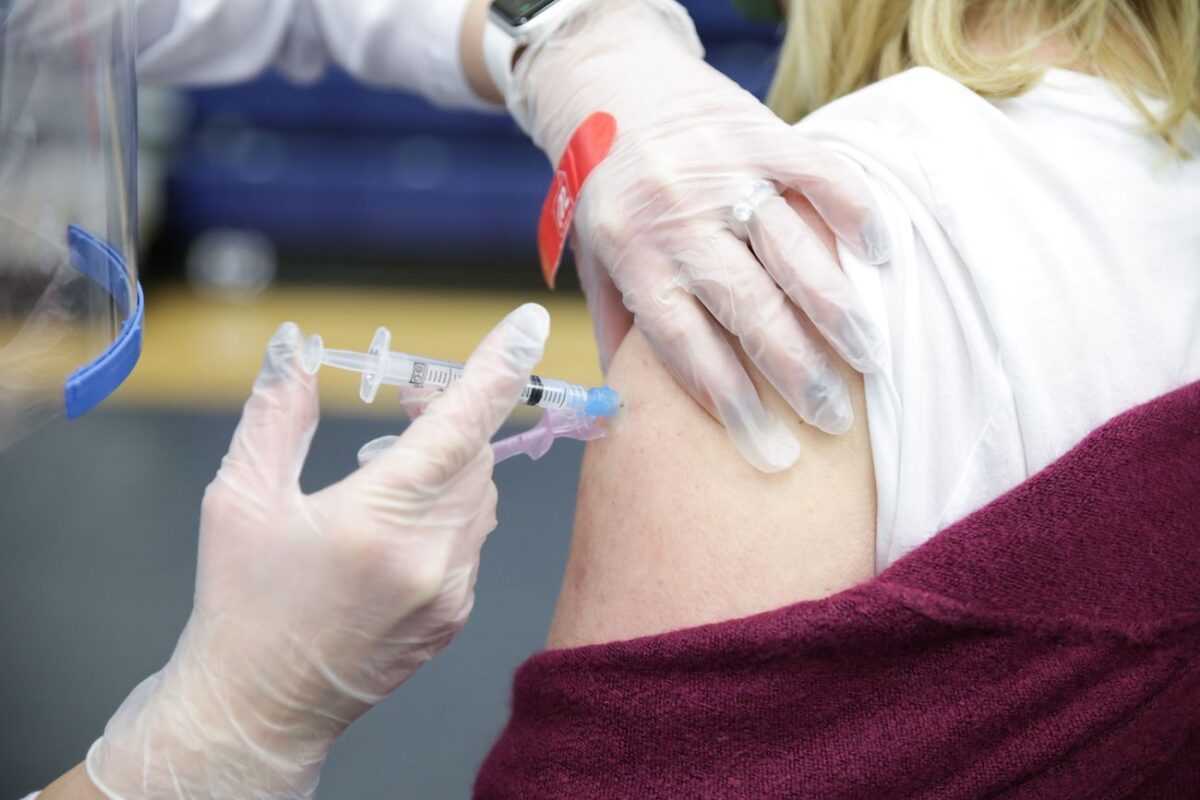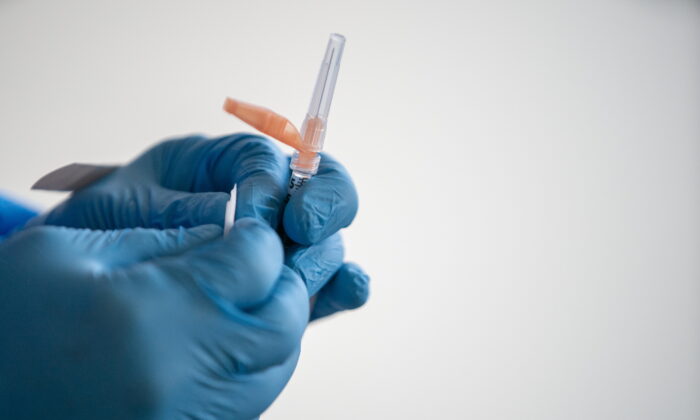18 Cases of Heart Inflammation After COVID-19 Vaccination Reported in Connecticut
A single state has recorded 18 cases of myocarditis in people who received a COVID-19 vaccine. All of the cases in Connecticut required hospitalization.
Acting Health Commissioner Dr. Deirdre Gifford told reporters during a virtual press briefing on Monday that the cases have been “rare” and “mild.”
But she added later when asked how many of the patients were hospitalized, “All of the cases that were reported to us were individuals that were hospitalized, the vast majority for a couple of days.”
“One individual that we’re aware of is still hospitalized. The other 17 have been sent home and they’re doing fine,” she said.
No other state appears to have publicly reported concrete numbers of myocarditis, or heart inflammation, among those who got a COVID-19 vaccine after the Centers for Disease Control and Prevention (CDC) said it was investigating reports of the condition.
The Washington State Department of Health said in a statement on Monday that it was “aware of reports of a small number of cases of myocarditis or pericarditis in some patients, post-vaccination,” adding, “Further investigation is needed to determine if these cases are connected in any way to COVID-19 vaccines.”
Health care providers in Washington, Idaho, and Oregon have been notified about the issue so they are prepared to quickly identity symptoms if more cases occur.
Symptoms of myocarditis include chest pain, an abnormal heartbeat, and shortness of breath.
In a May 20 notification, the Oregon Health Authority told health care providers that there were at least six recorded cases of myocarditis in the state following vaccination, the Salem Statesman Journal reported. All six required hospital care.
The authority did not immediately return a request for comment.
The CDC’s vaccine safety work group announced last week that it was presented with myocarditis in persons who received shots produced by Moderna or Pfizer. The group said it concluded there “are relatively few reports of myocarditis to date” and that the cases predominately occur in adolescents and young adults within four days after vaccination.”
Most cases appear to be mild, the group added. Experts in the group were following up on the cases.

The group was collecting information in part from gleaning reports submitted to the Vaccine Adverse Event Reporting System, a passive reporting system that allows anybody to submit reports about adverse events following vaccination.
As of May 25, 155 reports have been submitted regarding myocarditis among people who received a COVID-19 jab.
Pfizer and Moderna have said they are aware of the reports.
Youth are largely at little risk of death or severe illness after getting infected with the CCP (Chinese Communist Party) virus, which causes COVID-19. But some experts are urging the young to get a shot to better protect those who are more vulnerable, including the elderly.
European regulators are also probing reports of post-vaccination myocarditis.
Dr. Rochelle Walensky, the head of the CDC, told a virtual briefing last month that there was no link seen between COVID-19 vaccines and myocarditis after the Pentagon reported over a dozen cases among service members and their families.
The American Heart Association and American Stroke Association said in a joint statement on May 23 that the benefits of COVID-19 vaccines outweigh the “rare, possible risk of heart-related complications, including inflammation of the heart muscle, or myocarditis.” The associations are still recommending all adults and kids over the age of 12 get a COVID-19 vaccine.
Over 77,000 children under the age of 12 have received at least one shot as of May 24, according to the CDC. Another 2.1 million between the ages of 12 and 15 have gotten at least one jab.
“Our health and medical experts still continue to convey that it is the right step for 12 to 15 year olds to get vaccinated, that these are limited cases,” White House press secretary Jen Psaki told reporters on Monday. “And that, obviously, the risks of contracting COVID are certainly significant, even for people of that age.”

No comments:
Post a Comment